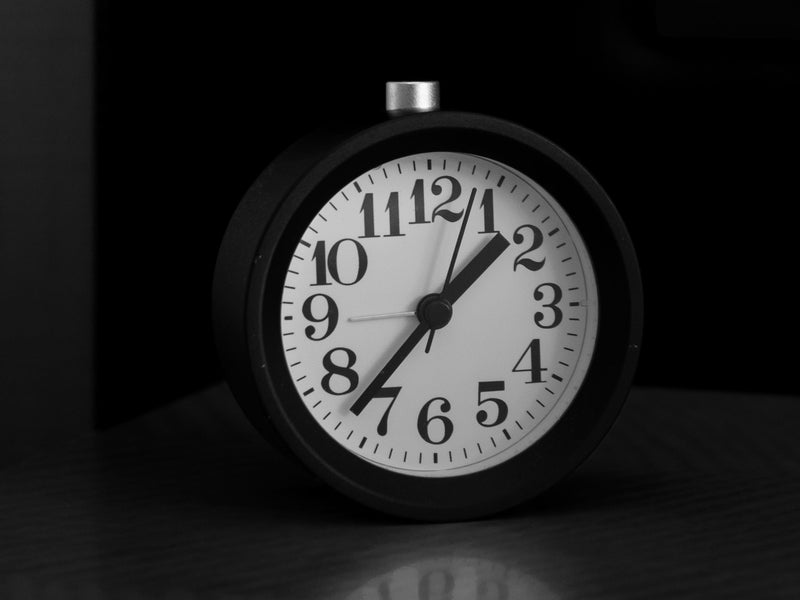Let’s be real: aging women don’t want to think about menopause. TV skits about middle-aged women suddenly fanning themselves or spending more time at the open fridge door have influenced how we think about women reaching this stage of their life—and not in a good way.
Instead of framing menopause as a natural part of life to embrace, it makes us the butt of jokes written by men. Remember Kitty experiencing the “change of life” on “That 70’s Show?” 😒
The truth is that much like death and taxes (and, unfortunately, jokes about menopausal women on sitcoms), menopause is something you’ll eventually have to face. What is not true is that every woman will experience the same menopause symptoms, go through menopause at the same age, or even feel the same way about her journey.
We are all highly individual creatures, so menopause will look different for each one of us. Menopause symptoms are portrayed on television as hot flashes and mood swings, but what about the symptoms we aren’t prepared for—the ones that are considered to be “not suitable for TV”? And what, exactly, happens to our menstrual cycles as we approach the menopausal phase of our lives?
We’re here to share what menstruation might look like after 40, some of the lesser-known menopause symptoms, and how to find relief.
Menopause: What Are The Facts?
First thing’s first: what do we mean when we talk about menopause? Do you know what it is to be menopausal? How is it measured?
Technically speaking, a person hits menopause the day they’ve gone a full twelve months without menstruating. Once that milestone is reached, a new phase of life—menopause—begins and you fall into the post-menopausal category.
As with the onset of menstruation, the age that women begin to experience menopause symptoms varies greatly—even from mother to daughter. You might fall into one group of women who experience early menopause (known as perimenopause) in their 30s, or you might notice hormonal changes between the ages of 40 and 50. You might even reach your mid-50s without ever having hot flashes, irregular periods, or any other symptom of menopause. That being said, age 50 is the average age at which most women have experienced signs of menopause.
Menstruation After 40: Diving Deeper Into Common Symptoms
Did you know that it’s common to notice changes in your menstrual cycle for up to a decade before you officially fall into the post-menopausal category? For most women, signs of perimenopause begin in their late 30s or early 40s.
Once you reach the perimenopausal stage of your life, your ovaries will steadily start producing lower estrogen levels and the monthly ovulation process you’ve known for your adult life will come to an end. As your ovulations become less in number, your levels of estrogen and progesterone (the hormones mainly responsible for your menstrual cycle) levels will decrease.
These hormones are connected to multiple systems in the body, from the digestive tract to your bones. This means that fluctuations can cause changes in some of our biological processes. This can intensify some of the more common menopause symptoms such as hot flashes, painful blood clots, and menstrual bleeding that occurs outside the normal menstrual cycle.
Some of the typical signs that menopause is approaching include:
- A more irregular menstrual period
- Changes in body temperature that cause hot flashes or chills
- Sleeping issues like night sweats
- Mood irregularities
- Weight gain
When will you, personally, experience the first signs of menopause? That largely depends on your family history and lifestyle. If other women in your family have experienced premature menopause, the chances are good that you will follow suit. Chat with your family elders to gain an understanding of what their menopause experience was like.
There are other factors that have been shown to shorten the menopause timeline and cause earlier onset. These factors include smoking, alcohol consumption, physical activity, and even stressors like having surgery.
But what if you are reaching middle-age and haven’t experienced any of the menopause symptoms above? Does that mean you’re the luckiest person alive and won’t experience menopause? We wish, but no.
Uncommon Signs of Menopause
There are a few symptoms associated with menopause that you might not expect—things beyond the stereotypical, “as-seen-on-TV” hot flashes. You might not even realize some of these symptoms are being caused by menopause, so unknown are they to the masses.
Some of the lesser-known menopause symptoms include:
- Skin and vaginal dryness
- Breast tenderness
- Brain fog and mental confusion
- Bloating and body weight gain
- Thinning hair or brittle nails
- Headaches and light-headedness
- Digestive issues and slowed metabolism
- Tingling or burning sensations
Reading this list can feel overwhelming, but don’t get discouraged. You are unlikely to experience all of the above as you reach your menopausal transition. In fact, you might experience the opposite.
For example, take brain fog. While many of us experience fatigue and struggle to concentrate during these months, some women report feeling extra energized to the point of being unable to sleep at night. The reality is that when it comes to menopause, we’re playing at the roulette table of our own biology, and the odds might or might not be in your favor.
One “symptom” that you can get excited about is the delicious “zero cares given” shift many women experience. Women often report a loss of mood swings, attachment to the needs or judgments of others, and less anxiety about the high level of caregiving that women are expected to show. In exchange for all of our lifelong, womanly trials, middle-aged women are often gifted with the ability to shed the skin in which we’ve lived our entire lives and emerge with a newfound sense of confidence.
Menopause Relief
Menopause symptoms range from fun (newfound confidence) to freaky (night sweats are the worst). Thankfully, there are a few steps you can take to ensure your experience is as pleasant as possible regardless of your prominent symptoms.
The first thing is living a healthy lifestyle. (It’s a cliche for a reason—it works!) Getting regular exercise and eating a balanced diet are typically recommended as a cure-all for many ailments, but it’s especially important when it comes to menopause. Stress has been linked to more severe perimenopausal symptoms, so if you can cut down on it you’ll likely find the transition less challenging.
There are several other benefits to keeping your fitness levels up during menopause:
- Warding off rapid weight gain
- Strengthening your bones
- Combating health issues like breast cancer and cardiovascular disease
- Using exercise as a natural mood-booster
Other holistic menopause treatments include yoga and acupuncture—both of which researchers have linked to lessened menopause symptoms.
Some menopause symptoms like heavy bleeding and pain can have a huge impact on your daily life. Women experiencing this tend to turn to treatments such as birth control or IUDs to relieve the cramping and heavier vaginal bleeding, but there are also surgical procedures like an endometrial ablation that cauterizes the lining of the uterus, stopping your periods completely.
These are usually options used by women suffering from heavy menstrual flow or pain that affects their quality of life and are considered a last resort. It’s important to remember that it can be difficult to diagnose menopause since it’s more of a gradual change affecting the entire body rather than a single thing that can be pinpointed.
The best thing you can do to help your primary physician (or OB/GYN in this case) is to keep track of your cycle using a monthly calendar or period app on your phone and to not be afraid to speak up about what you are experiencing if you notice anything out of the ordinary.
Why Tracking Your Menstrual Cycle Matters
People often associate menstrual cycle tracking with people who are trying to get (or NOT get) pregnant, but even into your 40s, tracking your menstrual cycle is important. Your cycle can offer key insights into your overall health at any age, and irregular symptoms like abnormal bleeding are a sign that you should contact your doctor.
Sometimes, an irregular period or drastic flow change can indicate another health issue rather than being a harbinger of menopause. Having a detailed record of your previous cycles can help you quickly spot any potential problems and ensure that you get appropriate treatment in a timely manner.
In general, many women manage their menopause symptoms without the input of their medical practitioner. However, if the changes are affecting your quality of life, it’s a good idea to talk about options like Hormone Replacement Therapy (HRT) and to consider taking supplements to ensure a smooth transition.
Hormone Replacement Therapy is one of the more commonly used menopause treatments. The benefits of hormone therapy for menopausal women include relieving intense bodily temperature changes and general discomfort, but this type of treatment might not be suitable for all women. Hormone therapies that artificially increase estrogen in the body as a treatment for menopause can also increase cardiovascular risk factors and other health conditions.
Menopause Supplements for Relief
Many herbal supplements have been found to be effective ways to get menopause relief. Herbal supplements for menopause are particularly helpful for those worried about the long-term risk of menopausal hormone therapy. That being said, remember to always consult with your primary physician before taking any of the below at the time of menopause.
- Flaxseed contains high levels of lignans which have been associated with balancing female hormones like estrogen and progesterone, the two main hormones associated with menopause.
- Ginseng and St. John’s Wort are thought to assist in boosting your mood and helping to ease sleeplessness.
- Evening Primrose Oil is believed to mitigate hot flashes and body chills.
- Chasteberry is used by many women to reduce anxiety and other PMS-related issues.
We sourced the best of these ingredients to create our Perimenopause Support formula to help support you and all women through these changes (and more).
Wile: Natural Menopause Relief
At Wile, we only make use of the best quality natural ingredients to form part of our menopause supplement. Our natural menopause treatments are made to support you on your period journey after 40. We want you to know, woman to woman, that the diagnosis of menopause does not have to be the only thing that defines this time in your life.
Menopause might be inevitable, but it doesn’t have to rule your life. We’re changing the narrative with our menopause-friendly editorial policy, and we want you to join us. Try our Perimenopause Support supplement made especially with women of this lifephase in mind.
The Wile system is different. Every product can work together to build the support system you need today, then adapt with different solutions later as your life and perimenopausal journey changes.
What do we mean?
You may start with Perimenopause Support to help your overall hormonal and emotional wellness. And keep on using it to help support a healthier baseline and overall benefits for all things over 40.
Then you may add 40+ Period Support if PMS comes roaring back or as your cycle gets more erratic.
Once that's less of a concern, you may switch to Wile Hot Flash for ongoing vasomotor issues, which btw can last for years.
Early in your 40s, irritability may have you reaching for the Un-Anger. When that naturally downshifts, you may swap it for Un-Worry or need no tinctures at all.
If an intense life period has you reaching for chocolate, you may add Stave the Crave then kick it when you've rewired the habit or moved into a different phase.
And so on.
Sources:
-
Mathias, Tamara. “Yoga, Acupuncture Might Ease Menopause Hot Flashes.” U.S., November 30, 2018. https://www.reuters.com/article/us-health-menopause-hot-flashes/yoga-acupuncture-might-ease-menopause-hot-flashes-idUSKCN1NZ2RL.
This article is intended for informational purposes and is not intended to replace a one-on-one medical consultation with a professional. Wile, Inc researches and shares information and advice from our own research and advisors. We encourage every woman to research, ask questions and speak to a trusted health care professional to make her own best decisions.




